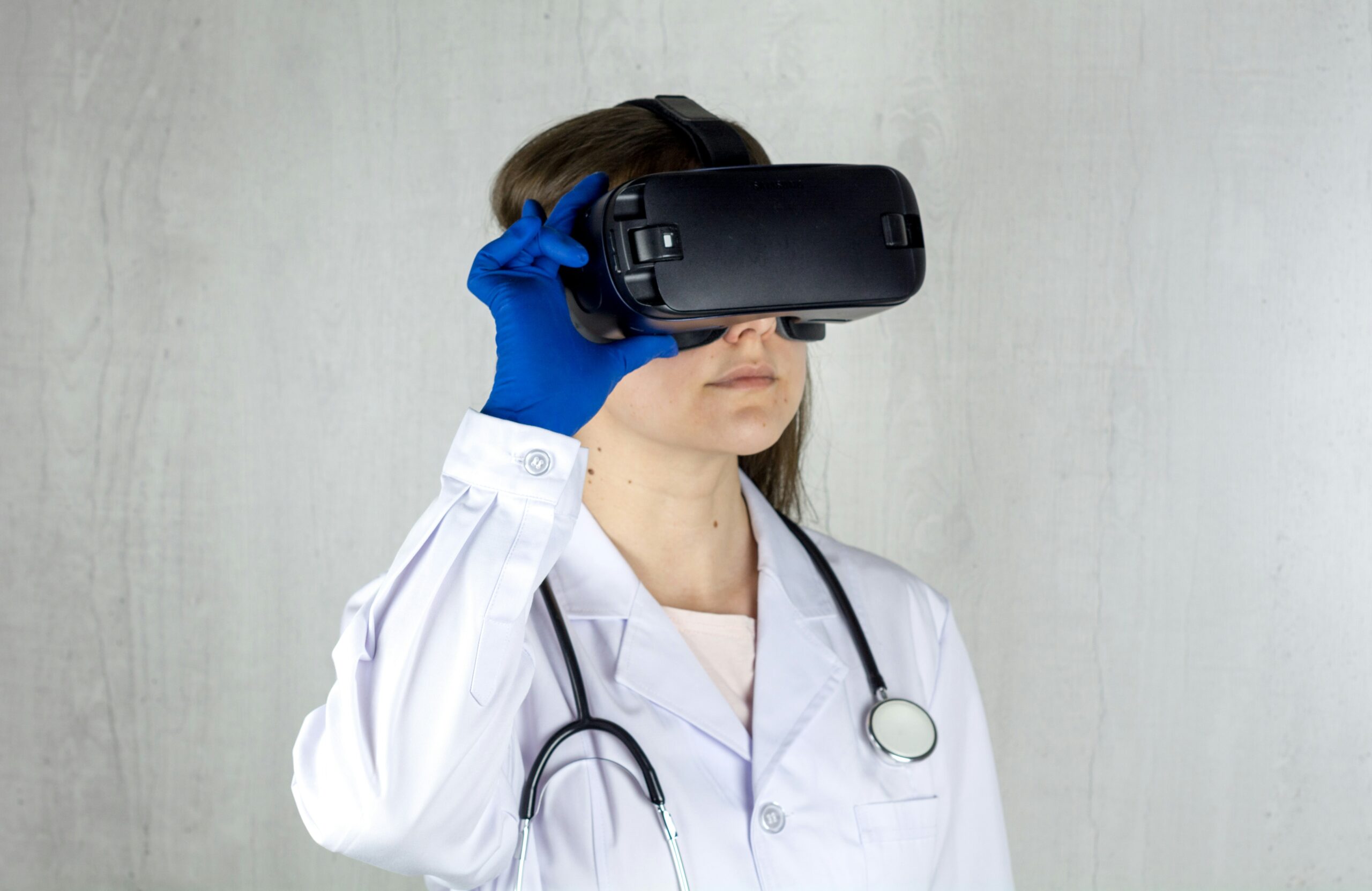The Impact of Social Media on Mental Health: A Tech Perspective
 Photo by Timothy Hales Bennett on Unsplash
Photo by Timothy Hales Bennett on Unsplash Introduction to Social Media and Mental Health
In today’s interconnected world, social media has become a significant aspect of our daily lives, impacting various dimensions of human interaction and communication. It encompasses a wide range of platforms, including Facebook, Twitter, Instagram, and TikTok, where individuals share content, engage with others, and cultivate online communities. The rise of social media has been accompanied by increased discourse surrounding its effects on mental health, which is defined as a person’s emotional, psychological, and social well-being. It influences how people think, feel, and act, as well as how they handle stress and relate to others.
The relationship between social media and mental health is complex and multifaceted. On one hand, these platforms can provide significant benefits to users, including social connectivity, access to information, and opportunities for self-expression. Many individuals find solace in online communities, especially those who may experience social anxiety or isolation in their offline lives. They can receive support from like-minded individuals, fostering a sense of belonging and acceptance.
Conversely, social media can also contribute to adverse mental health outcomes. The continuous exposure to curated versions of others’ lives often leads to unhealthy comparisons, which can result in feelings of inadequacy and low self-esteem. Cyberbullying is another critical issue, as individuals, especially adolescents, may face harassment or negative commentary that profoundly impacts their mental well-being. Furthermore, excessive use of social media has been associated with increased feelings of loneliness and anxiety, partially due to the addictive nature of these platforms.
As we delve deeper into these aspects, it is crucial to understand both the positive and negative implications of social media on mental health. Through this examination, we can garner insights that may guide users in navigating social media in ways that promote psychological well-being and resilience.
The Positive Aspects of Social Media
Social media platforms have emerged as significant tools for fostering positive mental health outcomes. One of the primary benefits of social media is its ability to facilitate community building. Individuals can connect with like-minded peers, forming supportive networks that can assist in combating feelings of isolation and loneliness. These communities often provide a sense of belonging, wherein individuals share their experiences and experiences, thus promoting solidarity and understanding among users. The visibility of these connections has the potential to alleviate mental health struggles, encouraging participants to seek help and share their journeys.
Moreover, social media can serve as a vital access point to support networks that may not be available in an individual’s immediate vicinity. This aspect is particularly crucial for those living in remote areas or for marginalized groups who might find traditional support systems lacking. Through these online platforms, users can engage with professionals, mental health advocates, and peer supporters, creating opportunities for learning and growth. They can receive immediate feedback and encouragement, ultimately enhancing their coping strategies and emotional resilience.
In addition to community support, social media is also instrumental in raising awareness about mental health issues. Campaigns and initiatives shared across these platforms educate the public about mental health, reduce stigma, and promote understanding. These initiatives encourage open dialogues surrounding mental health, helping users feel empowered to discuss their issues. The sharing of positive experiences on social media can further inspire others, demonstrating that healing and recovery are possible. Hence, while challenges exist regarding social media’s impact on mental health, its capacity for community enhancement, support access, and awareness-raising cannot be overlooked.
The Negative Consequences of Social Media Use
Social media, while offering numerous benefits in terms of connectivity and information sharing, can also have significant adverse effects on mental health. One prominent issue is cyberbullying, which has become increasingly rampant across various platforms. Victims of such online harassment often experience feelings of isolation, anxiety, and depression, which can lead to severe mental health repercussions. The anonymity provided by social media can embolden individuals to engage in bullying behaviors that they might avoid in face-to-face interactions.
Additionally, social comparison is another detrimental outcome of social media usage. Users frequently compare their lives to those presented in curated posts, leading to feelings of inadequacy and negative self-perception. The constant exposure to idealized representations of other people’s lives can create unrealistic expectations, fostering a sense of failure among individuals who feel they cannot measure up. This cycle of comparison can contribute to the deterioration of self-esteem and amplify feelings of dissatisfaction.
Furthermore, addiction to social media platforms is a growing concern. Individuals may find themselves spending excessive amounts of time online, detracting from real-life interactions and leading to a decreased sense of fulfillment. This compulsive behavior can foster increased anxiety when users are not connected, as well as feelings of loneliness, as in-person relationships are neglected. Research indicates that the more time spent on social media, the greater the likelihood of experiencing mental health issues, including depression and anxiety disorders.
In light of these factors, it is crucial to recognize and address the negative consequences wrought by social media usage. The challenges posed by cyberbullying, social comparison, unrealistic expectations, and addiction underscore the need for a balanced approach to social media engagement, promoting healthier online habits that support mental well-being.
The Role of Algorithms in Shaping User Experience
Social media platforms utilize complex algorithms designed to enhance user engagement by curating content that aligns with individual preferences. These algorithms analyze user behavior, such as likes, shares, and comments, to predict what content the user is most likely to engage with. While this technology can enrich user experiences by offering relevant content, it also poses significant challenges to mental health. The focus is primarily on maximizing engagement, which can inadvertently lead to the creation of echo chambers, where users are primarily exposed to opinions and information that reinforce their existing beliefs.
Additionally, algorithm-driven content can affect users’ perceptions of reality. When individuals continuously receive similar viewpoints or curated content that aligns with their interests, they may become isolated from diverse perspectives. This lack of exposure can contribute to heightened anxiety and depression, as users may perceive their online experience as a complete representation of the world around them. Furthermore, algorithms often prioritize sensational or emotionally charged content, which can lead to the amplification of fear, outrage, and anxiety among users. As such, the interplay of algorithms and mental well-being is complex and multifaceted.
Moreover, the algorithmic nature of social media often emphasizes performance metrics such as shares, likes, and views, creating an environment where personal worth is tied to online validation. This can lead to a cycle of comparison and competition that adversely affects mental health. Users may experience stress or feelings of inadequacy when their posts do not receive the anticipated attention or acknowledgement. Thus, understanding the role of algorithms in shaping user experience is critical in addressing the broader implications for mental health in today’s digital landscape.
Demographic Variations in Social Media’s Impact
The influence of social media on mental health is not uniform; rather, it varies significantly across different demographic groups. Age is one of the most notable factors, as adolescents and young adults frequently experience heightened vulnerability to social media’s negative aspects. Research indicates that younger individuals are often more susceptible to feelings of anxiety, depression, and loneliness, which can be exacerbated by constant comparisons with peers showcased on these platforms. Conversely, older adults may utilize social media differently, primarily for connection and support, thus experiencing a distinct set of benefits and challenges.
Gender also plays a critical role in the impact of social media on mental health. Females, particularly teenagers, may face more intense pressure regarding body image and social validation, which can lead to negative self-esteem and increased anxiety. In contrast, males may engage in social media in a manner that emphasizes competition and achievement, which can compromise their emotional well-being when faced with societal expectations. Furthermore, the content consumed and shared varies by gender, influencing the mental health outcomes distinctly.
Socioeconomic status further contributes to the diversity of social media’s impact. Individuals from lower socioeconomic backgrounds may experience greater stress and anxiety related to their economic conditions, and when combined with social media’s portrayal of wealth and success, this can amplify feelings of inadequacy. On the other hand, individuals from higher socioeconomic backgrounds may encounter different pressures, such as maintaining a certain image or facing public scrutiny, which can lead to unique mental health challenges.
Cultural background also shapes how social media affects mental health. Different cultures may have varying levels of acceptance and usage of social media, influencing the mental health repercussions. For instance, collectivist societies might experience an increased sense of community through social media, while individualistic societies might face heightened isolation or loneliness. These demographic factors significantly underscore the multifaceted relationship between social media and mental health.
The Influence of FOMO (Fear of Missing Out)
FOMO, an acronym for Fear of Missing Out, has emerged as a significant psychological phenomenon, particularly in the realm of social media. This pervasive feeling is characterized by the anxiety that arises from the perception that others are experiencing rewarding events from which one is absent. As individuals increasingly engage with various social media platforms, the prevalence of FOMO has notably intensified, leading to profound implications for mental health.
Users often find themselves scrolling through carefully curated images and posts that portray idealized lifestyles, prompting comparisons that can lead to feelings of inadequacy. This perpetual cycle creates a sense of urgency to remain constantly connected to social interactions and activities to avoid the discomfort of missing out. The need to stay updated on the latest happenings often leads to compulsive checking of social media accounts, which can exacerbates anxiety levels.
One notable impact of FOMO on mental health is the increase in symptoms of anxiety and depression. Research has shown that individuals who frequently experience FOMO are more likely to report feelings of loneliness, low self-esteem, and dissatisfaction with life. The constant comparison to the seemingly perfect lives of others often fuels a negative self-image, creating a detrimental cycle that affects emotional well-being.
Moreover, the influence of FOMO extends beyond individual mental health; it contributes to a broader culture of restlessness and distraction. Users frequently prioritize digital interactions over in-person connections, which could lead to social isolation. In turn, this isolation further compounds feelings of anxiety and depression, suggesting a concerning link between social media usage driven by FOMO and overall mental health deterioration. Addressing the implications of FOMO is essential for fostering healthier social media habits and improving psychological resilience in today’s digitally interconnected society.
Strategies for Healthy Social Media Use
Managing social media usage effectively is crucial for maintaining mental well-being. One of the key strategies is to set clear boundaries regarding when and how long to engage with various platforms. By establishing designated times for social media use, individuals can create a healthier digital routine, reducing the likelihood of mindless scrolling that can lead to feelings of anxiety or isolation.
Another essential strategy is curating one’s social media feed. Users should take an active role in determining the content they consume. This may involve unfollowing accounts that trigger negative feelings, such as jealousy or inadequacy, and following accounts that promote positivity, education, and mental health awareness. A well-curated feed can foster a more supportive environment and contribute to better emotional health.
Taking regular breaks from social media is equally important. Engaging in digital detoxes—where users refrain from checking social media for a set period—can provide a refreshing perspective and help reset one’s mental state. Even short breaks throughout the day can be beneficial, allowing individuals to step back, reflect, and engage in offline activities that nourish their mental health.
Mindfulness about the content consumed is another vital aspect. Reflecting on how particular posts or interactions make one feel can lead to healthier consumption habits. It is advisable to engage more with content that uplifts and inspires personal growth, while avoiding content that may incite comparison or negativity.
By implementing these strategies—setting boundaries, curating feeds, taking breaks, and being mindful of content—users can navigate social media more responsibly. This proactive approach can significantly enhance one’s mental health, ensuring that social media remains a tool for connection and support rather than a source of distress.
The Role of Tech Companies in Mitigating Negative Effects
In recent years, the intersection of social media and mental health has garnered significant attention, leading many to question the responsibility of tech companies. As the architects of these platforms, they have a critical role in mitigating the negative effects associated with their use. Various initiatives can be implemented by these companies to promote healthier online experiences for their users.
One essential action is the development of features that encourage positive usage patterns. For instance, companies can integrate tools that monitor and limit screen time, enabling users to take breaks from their platforms. These tools can trigger reminders for users when they have spent extended periods online, promoting a more monitored and balanced approach to engagement. Additionally, platforms can incorporate features that highlight and promote positive content, steering users toward uplifting and supportive communities rather than negative ones.
Moreover, investing in user education is paramount. Tech companies have the opportunity to create campaigns and resources that inform users about the potential risks of excessive social media consumption, such as anxiety and depression. By making mental health resources readily available, these companies can help users understand when to seek help or take a step back from their online presence. Workshops, informative articles, and partnerships with mental health organizations can serve as valuable assets in this educational endeavor.
Furthermore, social media companies should foster transparent communication regarding algorithm changes that influence content visibility. By clarifying how user interactions shape the content delivered to them, tech companies can empower users to make more informed decisions about their online engagement. In this way, social media can transition from a potentially harmful environment to one that actively contributes to the well-being of its users. This shift requires a commitment to innovation and responsibility from tech companies as they navigate the complexities of mental health in the digital age.
Future Trends and Considerations
As social media continues to evolve, its impact on mental health remains a critical topic of discussion within both technology and mental health sectors. Future trends will likely be shaped by various factors, including the emergence of new platforms and changing user behaviors. Recent shifts in digital communication suggest that users are gravitating toward more intimate and community-focused platforms, such as those that promote private group interactions rather than public sharing. This inclination toward smaller networks may positively influence user well-being by fostering stronger social connections, which are essential for mental health.
The increasing awareness of mental health issues in digital spaces may also lead to regulatory changes. Governments and organizations are actively exploring the necessity of regulations to improve user safety and well-being. This could result in enhanced policies that guide social media companies to implement features promoting mental health awareness and providing users with resources for assistance. Additionally, greater transparency about data usage and privacy concerns may empower users, allowing them to make informed choices that promote healthier online experiences.
Technological advancements are poised to play a significant role in redefining the social media landscape. Artificial Intelligence (AI) and machine learning may be employed to create algorithms that detect harmful content or behaviors correlating with mental health issues. These tools can facilitate early intervention, guiding users towards supportive communities or relevant resources. Moreover, integration of mental health services within social platforms is becoming increasingly feasible, allowing users to access mental health support directly within their social media experience.
In conclusion, the future of social media and its relationship with mental health presents both challenges and opportunities. By adapting to changing user preferences and leveraging technology for positive outcomes, the digital landscape can evolve to better support mental well-being in this interconnected world.














No Comments